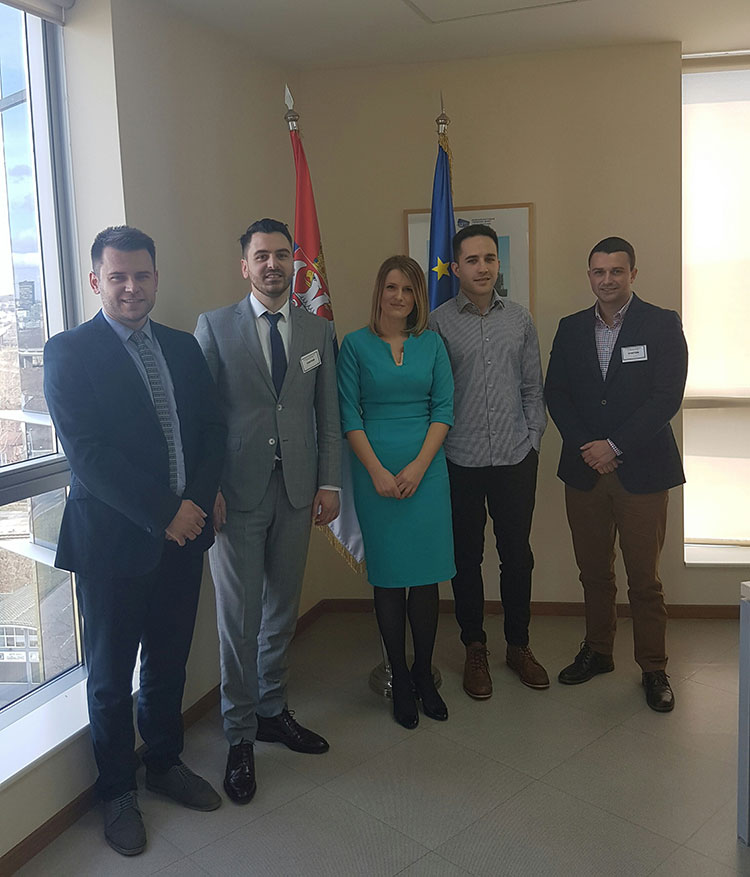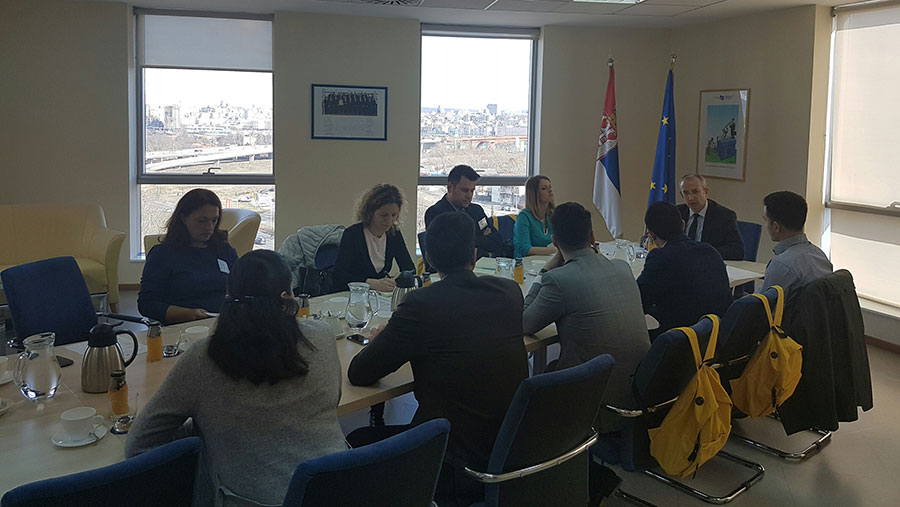Five qualified and motivated young civil servants from Albania, Macedonia, Montenegro, Kosovo* and Bosnia and Herzegovina this week started their exchange programme in Serbian institutions, in the framework of a special EU-funded education and exchange programme “EU Scheme for young professionals in the Western Balkans“.
The group assigned to Serbia will focus on the topic of ‘Budgetary procedures towards efficiency’. Over the next two weeks, their exchange programme will combine a series of meetings with relevant institutions and time for group work. The young professionals are located in the Chamber of Commerce and Industry of Serbia as well as the Serbian European Integration Office, which created the two-weeks programme.
 On their first day in Belgrade, on Monday 6 March, Martin Noveski, Muhamed Latifi, Helios Reveli, Dijana Dedic and Danilo Smolovic met with the Head of EU Delegation to Serbia, Ambassador Michael Davenport, and discussed the experience on this project so far. Ambassador Davenport was particularly interested in the work of each guest in their home country, how they will be able to learn from the Serbian budgetary practices and integrate the knowledge into their final papers.
On their first day in Belgrade, on Monday 6 March, Martin Noveski, Muhamed Latifi, Helios Reveli, Dijana Dedic and Danilo Smolovic met with the Head of EU Delegation to Serbia, Ambassador Michael Davenport, and discussed the experience on this project so far. Ambassador Davenport was particularly interested in the work of each guest in their home country, how they will be able to learn from the Serbian budgetary practices and integrate the knowledge into their final papers.
Meanwhile, five representatives of the Serbian institutions have also started their assignments in the other countries of the Western Balkans.
After attending an initial capacity-building training course at the School of Public Affairs at Sciences Po in Paris in October last year, 30 public servants from the Western Balkans were divided into six groups focusing on different topics and this week started their exchange programme in the region. The participants, who come from ministries of finance, European integration, or prime ministers’ offices will have to write a project paper after which they will gather at a conference in May to present their findings.
The pilot programme “EU Scheme for young professionals in the Western Balkans“ was established as a follow-up to the Summit on the Western Balkans (WB) held in Paris in June 2016 which reconfirmed the European perspective of the WB countries. Public administration reform and good governance were once again put at the top of the Union’s accession agenda and the programme therefore focused on these specific subjects. The project is funded by the European Commission and implemented by the British Council.
*This designation is without prejudice to positions on status, and is in line with UNSCR 1244/1999 and the ICJ Opinion on the Kosovo declaration of independence.




